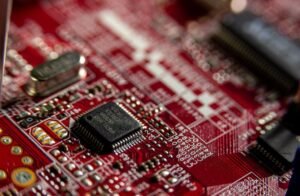Who Is Founder of Artificial Intelligence?
Artificial Intelligence (AI) has become an integral part of our everyday lives, revolutionizing industries and shaping the future of technology. But have you ever wondered who the founder of this groundbreaking field is? Although AI has evolved over several decades, there isn’t a single person credited as its sole founder. Instead, it is a result of contributions from various researchers and scientists across different time periods and disciplines.
Key Takeaways:
- There is no single founder of Artificial Intelligence.
- AI is the result of contributions from multiple researchers throughout history.
- Different disciplines, including mathematics, computer science, and neuroscience, have influenced the development of AI.
The Pioneers of AI
AI as a field can be traced back to the mid-20th century when a group of researchers began exploring the concept of creating intelligent machines. Some notable pioneers in the field include:
- Alan Turing – A renowned British mathematician and logician, **Alan Turing** proposed the idea of a theoretical computing machine that laid the foundation for AI.
- John McCarthy – Known as the “father of AI,” **John McCarthy** coined the term “Artificial Intelligence” and organized the influential Dartmouth Conference in 1956.
- Marvin Minsky – **Marvin Minsky**, along with John McCarthy, played a significant role in establishing AI as a distinct field and co-founded the MIT AI Laboratory.
A Multidisciplinary Field
Artificial Intelligence draws inspiration from various disciplines, combining knowledge and techniques from mathematics, computer science, linguistics, neuroscience, and more. *It is an amalgamation of different fields working together to simulate human intelligence.*
The Evolution of AI
Table 1: Major Milestones in AI Development
| Year | Development |
|---|---|
| 1950 | The birth of AI as a field with Alan Turing’s paper on Computing Machinery and Intelligence. |
| 1956 | The Dartmouth Conference, where AI was established as a field and its objectives were defined. |
| 1959 | Arthur Samuel develops a program that can play checkers and improve its performance over time through machine learning. |
As the field of AI advanced, different techniques and approaches were developed, including **symbolic AI**, **machine learning**, **neural networks**, and **natural language processing**. Each of these innovations contributed to the progress of AI and its applications.
The AI Revolution
The 21st century witnessed a monumental growth in AI, fueled by advancements in computing power and the availability of vast amounts of data. With the emergence of **big data** and breakthroughs in algorithms, AI applications in areas such as healthcare, finance, and autonomous vehicles have become more prevalent.
Table 2: AI Applications in Various Industries
| Industry | AI Applications |
|---|---|
| Healthcare | Medical diagnosis, drug discovery, personalized treatment plans. |
| Finance | Automated trading, fraud detection, risk assessment. |
| Transportation | Self-driving cars, traffic prediction, route optimization. |
AI has also raised important ethical considerations regarding privacy, job displacement, and algorithmic biases. *Ensuring AI systems are fair and accountable remains an ongoing challenge.*
The Future of AI
As technology continues to evolve, so does the potential of AI. With advancements in **deep learning**, **reinforcement learning**, and **robotics**, we can expect AI to further transform industries and empower new possibilities.
Table 3: Predicted AI Impact in the Future
| Domain | Predicted Impact |
|---|---|
| Healthcare | Improved diagnostics, personalized medicine, AI-assisted surgeries. |
| Education | Personalized learning, intelligent tutoring systems, automated grading. |
| Manufacturing | Increased automation, predictive maintenance, better quality control. |
As we embrace the potential of AI, it is crucial to continue ethical discussions and address potential challenges to ensure its responsible and beneficial integration into our society.

Common Misconceptions
1. AI doesn’t have a single founder
One common misconception about artificial intelligence (AI) is that it has a single founder. However, AI is the product of the collective efforts of numerous researchers and scientists over many decades. While certain individuals have made significant contributions to the field, AI has been developed through collaborative work and the accumulation of knowledge from various sources.
- AI is a result of collaborative efforts from multiple researchers.
- The development of AI relies on the accumulation of knowledge from various sources.
- No individual can be solely credited as the founder of AI.
2. AI is not the invention of a particular company
Another misconception is that a specific company, such as Google or IBM, is the sole creator of AI. While these companies have played significant roles in advancing AI technologies and have made notable breakthroughs, AI as a concept and field of study predates their existence. AI has evolved through the contributions and research of numerous institutions, universities, and individuals across the world.
- AI is a result of research contributions from many institutions and universities.
- Companies like Google and IBM have made substantial contributions to the field, but they are not the sole creators of AI.
- AI predates the existence of specific companies.
3. AI is not the exclusive domain of computer scientists
It is often assumed that only computer scientists can work on AI projects or contribute to the development of AI. While computer scientists play an essential role, AI is a multidisciplinary field that relies on contributions from experts in various domains, including mathematics, psychology, linguistics, and engineering. Collaboration among different disciplines is vital for a comprehensive understanding and successful advancement of AI.
- AI involves collaboration among experts from multiple disciplines.
- A multidisciplinary approach is necessary for the advancement of AI.
- Computer scientists are essential in AI, but other experts in relevant fields contribute as well.
4. AI is not synonymous with humanoid robots
Many people associate AI solely with humanoid robots like the ones depicted in science fiction movies. However, AI encompasses a broad range of technologies and applications beyond robotics. It includes machine learning, natural language processing, computer vision, expert systems, and much more. AI is a field that focuses on developing intelligent systems and algorithms, rather than solely humanoid robot creation.
- AI extends beyond humanoid robots.
- Machine learning, natural language processing, and computer vision are all aspects of AI.
- The focus is on intelligent systems and algorithms, not just creating humanoid robots.
5. AI is not an imminent threat to humanity
There is a common fear that AI will quickly surpass human intelligence and pose a threat to humanity. However, experts in the field maintain that the development of artificial general intelligence (AGI) that surpasses human capabilities is still a distant possibility. Researchers prioritize building AI systems that align with human values and can be controlled and managed effectively. Ethical considerations are significant in AI development to ensure its positive impact on society.
- The development of a superintelligent AGI is not an immediate concern.
- Building AI systems that align with human values is an important focus.
- Ethical considerations are prioritized in AI development to prevent negative impacts.

Article Title: Who Is Founder of Artificial Intelligence?
Artificial Intelligence (AI) has undoubtedly revolutionized various industries and significantly impacted our daily lives. This article aims to explore the origins of AI and shed light on the prominent figures who contributed to its development. Through a series of informative and engaging tables, we delve into the pioneering work of these individuals and their contributions to the creation of AI.
The First Steps: Contributors in Early AI Research
During the 1950s and 1960s, several individuals made noteworthy contributions that laid the foundation for AI as we know it today. This table highlights some of the key figures in the early years of AI research and their significant achievements.
| Name | Contributions | Year |
|---|---|---|
| Allen Newell | Developed the General Problem Solver (GPS) program, which used heuristics to solve complex problems | 1957 |
| John McCarthy | Coined the term “Artificial Intelligence” and organized the Dartmouth Conference, considered the birth of AI as a field | 1956 |
| Marvin Minsky | Pioneered research in artificial neural networks and co-founded the MIT AI Laboratory | 1959 |
| Herbert Simon | Developed the Logic Theorist program, which could prove mathematical theorems | 1956 |
Machine Learning and AI Applications
Machine learning, a prominent subfield of AI, has allowed computers to learn and improve from experience without being explicitly programmed. The following table showcases individuals who have made significant contributions to the advancement of machine learning and the diverse applications it enables.
| Name | Contributions | Year |
|---|---|---|
| Geoffrey Hinton | Pioneered the backpropagation algorithm, a fundamental process in training neural networks | 1986 |
| Yoshua Bengio | Contributed to the development of deep learning and its application to various domains | 2006 |
| Andrew Ng | Co-developed the Google Brain project and founded Coursera, an online platform for learning AI and other subjects | 2011 |
| Fei-Fei Li | Advocated for the use of large-scale datasets and computer vision in AI, co-founded AI4ALL | 2008 |
Natural Language Processing and AI in Language Understanding
Understanding and processing human language is a crucial aspect of AI. This table focuses on experts who have made significant contributions in the field of natural language processing (NLP) and language understanding.
| Name | Contributions | Year |
|---|---|---|
| Ray Kurzweil | Pioneered optical character recognition (OCR) and developed speech recognition systems | 1978 |
| Karen Spärck Jones | Introduced the concept of inverse document frequency (IDF) to improve information retrieval in search engines | 1972 |
| Jurafsky and Martin | Authored the widely acclaimed textbook “Speech and Language Processing” used in many language processing courses | 2000 |
| Christopher Manning | Contributed to developing the Stanford CoreNLP, a suite of NLP tools widely adopted in academia and industry | 2007 |
Robotics and AI in Action
Robotics combines AI techniques with mechanical engineering to create intelligent machines capable of performing useful tasks. This table highlights influential personalities in the field of robotics and their groundbreaking contributions to the fusion of AI and robotics.
| Name | Contributions | Year |
|---|---|---|
| Rodney Brooks | Developed the subsumption architecture and co-founded iRobot, known for the creation of the Roomba vacuum cleaner | 1986 |
| Cynthia Breazeal | Created the social robot Kismet and founded Jibo, aimed at developing interactive robot companions | 1997 |
| Hiroshi Ishiguro | Pioneered research on humanoid robots, including his own android replica, the Geminoid | 2005 |
| Sabine Hauert | Championed swarm robotics and co-founded Robohub, an online platform for robotics news and discussions | 2013 |
Conclusion
Artificial Intelligence, as a field, has witnessed contributions from countless individuals who have shaped its development and application in various domains. From the early pioneers in AI research to the contemporary experts in machine learning, natural language processing, and robotics, the contributions span a multitude of disciplines. As AI continues to advance and reveal more possibilities, the collaboration and efforts of numerous brilliant minds play an instrumental role in defining its future.
Frequently Asked Questions
What is the history of artificial intelligence?
Artificial intelligence (AI) has a rich history dating back to the early 1950s when the field of AI was first established. Since then, researchers and scientists have made significant contributions in developing AI technologies and shaping its applications.
Who is considered the pioneer of artificial intelligence?
John McCarthy, an American computer scientist, is widely regarded as the pioneer of artificial intelligence. He coined the term “artificial intelligence” and organized the Dartmouth Conference in 1956, which is considered the birthplace of the AI field.
What were some early AI milestones?
Some early milestones in AI include the development of the perceptron, a type of artificial neuron, by Frank Rosenblatt in 1957, and the invention of the expert system, a computer program designed to mimic the decision-making abilities of a human expert, in the 1970s.
What were the contributions of Alan Turing to AI?
Alan Turing, a British mathematician, made significant contributions to AI. His work in the 1930s laid a foundation for the theory of computation and provided insights into machine intelligence. Turing also proposed the Turing Test, a method for evaluating a machine’s ability to exhibit intelligent behavior.
Who is known for developing the first AI program?
Herbert Simon and Allen Newell, both American computer scientists, developed the Logic Theorist program in 1956, which is considered the first AI program. The program was able to prove mathematical theorems by using logic.
What is the current state of AI research?
AI research is highly active and continuously evolving. Researchers are working on various aspects of AI, including machine learning, natural language processing, computer vision, and robotics. AI is being applied across multiple industries, from healthcare and finance to transportation and entertainment.
Who are some prominent figures in AI today?
There are several prominent figures in AI today, including Andrew Ng, Fei-Fei Li, Yann LeCun, and Demis Hassabis, among others. These individuals have made significant contributions to the field of AI through their research, innovations, and leadership in organizations and academia.
What are the ethical concerns surrounding AI?
As AI becomes more advanced, there are growing ethical concerns. These include issues related to privacy, bias in AI algorithms, job displacement, and the potential for AI systems to be used for malicious purposes. Experts and policymakers are actively working on addressing these ethical challenges.
What is the impact of AI on society?
The impact of AI on society is significant and far-reaching. AI has the potential to revolutionize industries, improve efficiency, and enhance decision-making. However, it also poses challenges related to job automation, privacy, and the ethical use of AI. Society must carefully navigate these impacts while maximizing the benefits of AI.
What does the future hold for artificial intelligence?
The future of AI holds immense possibilities. It is expected that AI will continue to advance, enabling breakthroughs in areas such as healthcare, transportation, and scientific research. However, the ethical, social, and economic implications of AI’s widespread adoption and further development will require ongoing attention and responsible stewardship.




